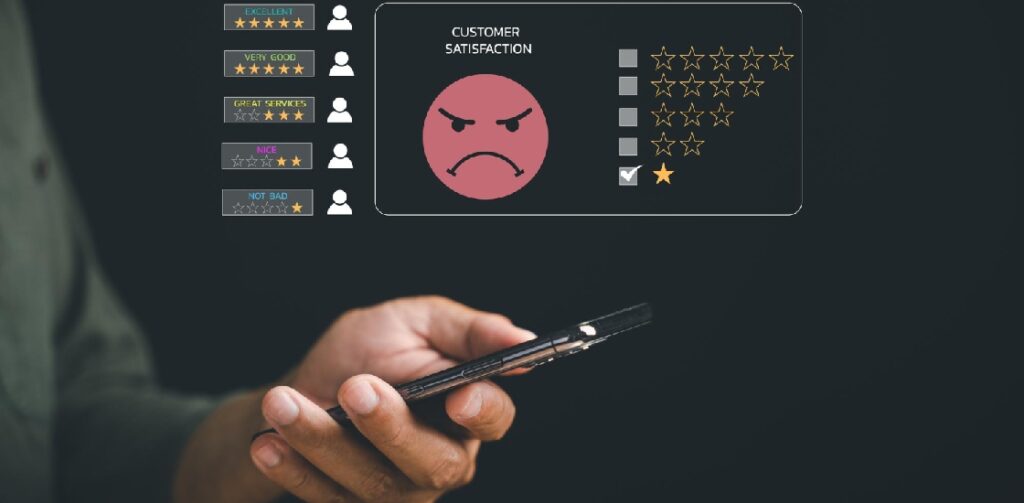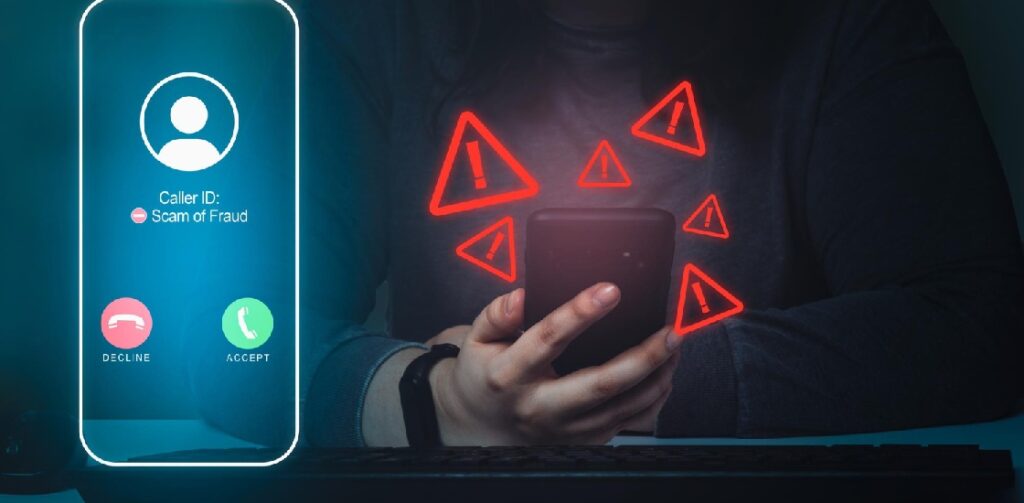In the United States, the imposter scam is quickly rising to the top of the list of fraud types. To deceive victims into disclosing personal information or sending money, scammers pose as reliable people, such as government representatives, tech support agents, family members, or financial organizations. Scammers pressurize victims into acting swiftly without first confirming the request by instilling feelings of panic, urgency, or emotional manipulation. The first step in safeguarding your finances and identity from possible fraud is identifying the warning indicators of fraud.
We at Bring Em In Investigations are experts in protecting people from identity theft and providing investigative services that keep people and companies one step ahead of scammers. Being aware of what to look for is the first line of defense. In this post, we’ll share five key ways to spot an imposter scam and how our team can help if you become a target.
1. Urgent or Threatening Language
The use of intimidating or threatening language is one of the clearest indicators that you are dealing with an imposter scam. Fear and a sense of urgency are used by scammers to force their victims into behaving hastily and without careful consideration. This strategy aims to incite fear so that you are less likely to pause and check the situation before giving money or personal information.
You might receive a phone call, email, or even a text message saying things like “You’ll be arrested if you don’t respond immediately.”, “Your bank account will be frozen unless you act now.”, and “Your grandchild is in danger and needs money right away.”
These are prime illustrations of how a false sense of emergency is produced by an imposter scam. The con artist wants you to believe that you don’t have time to verify their tale or ask questions. They will probably tell you to give money right away, frequently using untraceable means like gift cards or wire transfers, and they may pretend to be a government official, police officer, bank representative, or even a relative.
First and foremost, maintain your composure if you wish to handle this. Don’t allow urgency or fear to dictate how you behave. The IRS, Social Security Administration, or your bank are examples of legitimate institutions that will never call and demand urgent payment, threaten to jail you, or demand payment using gift cards.
If you receive a suspicious message or call, hang up immediately. Look up the official phone number of the agency or institution the caller claimed to represent and contact them directly. Never rely on a number or link provided by the caller or email sender. By staying aware of these tactics and refusing to give in to pressure, you can protect yourself from falling victim to an imposter scam.

2. Requests for Unusual Payment Methods
One of the most obvious indicators of an imposter scam is being requested to pay using means that cannot be tracked. It’s most likely a fraud if someone insists that you pay via wire transfers, gift cards, cryptocurrency, or payment apps like Zelle or Venmo. These payment methods are ideal for scammers who want to steal your money because they are very hard to track or reverse.
A call from someone posing as the IRS or another government entity is a typical illustration of an imposter scam. They’ll remark something along the lines of “You have unpaid taxes.” Visit the store, purchase $500 worth of Apple gift cards, and then call us to provide the codes. This is a classic tactic used in an imposter scam to create fear and urgency while directing you to use a payment method that offers no protection.
Another variation might involve someone pretending to be a law enforcement officer, saying you missed jury duty and must pay a fine immediately to avoid arrest, again, requesting payment through wire transfers or a payment app.
To handle this type of situation, never pay any supposed debt, fee, or emergency expense using gift cards, cryptocurrency, or wire transfers. No legitimate government agency, law enforcement officer, or financial institution will ever request payment in this way. If someone does, it’s a sure sign of an imposter scam.
If you’ve already sent money using one of these methods, it’s important to act fast. Contact Bring ‘Em In Investigations right away. Our team can help determine what happened, guide you through possible recovery options, and take immediate steps to protect your identity from further damage. The faster you respond, the better your chances of minimizing the impact of the scam.
3. Spoofed Caller IDs or Email Addresses
Spoofing is one of the most dishonest strategies employed in an imposter scam, and scammers nowadays are more skilled than ever. Spoofing enables scammers to impersonate caller IDs and email addresses to give the impression that they are contacting you from a reliable source, such as your bank, a government organization, or even a friend or relative. They might persuade you to donate money or divulge private information far more easily as a result.
For instance, you may get a call that seems to be from the police department in your area. If you don’t pay right away, the caller can say there is a warrant out for your arrest.
These subtle changes are easy to overlook, which is why spoofing is such an effective tool in the imposter scam.
Always take a moment to verify any suspicious communication. Double-check email addresses for odd spellings or added characters, and don’t trust the caller ID alone; it can be easily faked. Never click on suspicious links or download attachments from emails you weren’t expecting.
If you’re unsure whether the message or call is legitimate, reach out to the organization directly using official contact information from their website, not the information provided in the message.
Above all, contact a reputable fraud investigation firm like Bring Em In Investigations if you believe you have been the victim of an imposter scam. Finding digital traces, spotting scam activities, and safeguarding your identity from additional danger are our team’s areas of expertise. We assist you in confirming questionable activities and taking prompt action to protect your data.

4. They Claim to Be Someone You Know, but Something Feels Off
One of the most emotionally manipulative forms of an imposter scam is when a scammer pretends to be someone you love, like a grandchild, sibling, or romantic partner. These are commonly known as “Grandparent Scams” or “Romance Scams.” In these schemes, scammers prey on your concern and trust, using fabricated emergencies to pressure you into sending money quickly.
For example, you might receive a call from someone claiming to be your grandson who says he’s been arrested overseas and needs bail money. Or you might get a message from someone you’ve been talking to online, claiming they’ve had a medical emergency and need financial help right away. The goal of this imposter scam is to manipulate your emotions and make you act fast, before you can stop and think.
Signs of Deception Include:
- The caller or sender doesn’t sound quite right, and may avoid video or voice verification.
- They ask you not to tell anyone, claiming it could make the situation worse.
- They insist you send money immediately, often through untraceable methods like wire transfers or gift cards.
The best defense against this type of imposter scam is verification. Ask questions only the real person would know the answer to, or better yet, contact them directly using a known number or email. Don’t rely on the contact information given by the caller or message.
If something feels off, trust your instincts. Bring Em In Investigations offers fraud investigation services and Executive Protection Services in Dallas, TX, to help verify suspicious claims. We can trace digital footprints, examine call or message origins, and determine whether you’re truly dealing with someone you know or an imposter. With our help, you can act with confidence and avoid falling for emotionally driven scams.
5. They Ask for Personal or Financial Information
Pretending to be a trusted authority, such as a tech support agent, bank representative, or service provider, and requesting your personal information is one of the most harmful strategies employed in an imposter scam. These scams frequently begin with an urgent pop-up or message claiming that there is an issue with your account or that your machine is contaminated. After that, the con artist will ask you to “verify your identity” by giving them private information.
Your Social Security number, bank account or routing numbers, credit card information, and online passwords or PINs are among the details they might ask for.
Scammers can swiftly access your bank accounts, start phony accounts in your name, and commit identity theft once they have this information. Regretfully, a lot of people are unaware that they have been duped by imposters until the harm has been done.
Reputable companies and governmental organizations would never unexpectedly phone, text, or email you to request personal information. Do not reply if you receive such a request. Instead, use the phone number or email address listed on the company’s official website to get in touch with them directly.
Don’t freak out if you’ve already given personal information, but do take prompt action. Helping victims of identity-related scams is the area of expertise for Bring Em In Investigations. Our team will help assess the damage, identify unauthorized activity, and develop a clear recovery strategy.
We also offer professional Security Assessment Services in Dallas, TX, for both individuals and businesses looking to proactively protect their identity and sensitive data. Our assessments uncover vulnerabilities in your online and offline security so you can stay ahead of fraudsters.
With the right help and preventive steps, you can reduce your risk and gain peace of mind knowing your identity is secure from the growing threat of the imposter scam.
How Bring Em In Investigations Can Help You Fight Back
At Bring Em In Investigations, we understand the serious consequences of an imposter scam. That’s why we offer:
Identity Theft Protection Services
Our Identity Theft Protection in Dallas, TX, offers comprehensive support, including early detection of fraudulent activity, expert assistance in recovering compromised accounts, and personalized guidance on restoring your financial health. At Bring Em In Investigations, we work quickly to identify threats and help you regain control, ensuring your identity, finances, and peace of mind are fully protected from future scams.
Fraud & Scam Investigations
Our Fraud & Scam Electronic Surveillance in Dallas, TX, focuses on tracing digital footprints, collecting critical evidence for legal use, and strengthening your defenses against future scams. Whether you’re a business or an individual, Bring Em In Investigations provides expert support. Even if you’re unsure whether you’ve been targeted, a consultation with our team can offer clarity, peace of mind, and next steps.
We can offer all the services, not only related to fraud and your worldly presence. We also offer personal investigation services, including Divorce Case Investigation Services in Dallas, TX.

Final Thoughts
Scammers are constantly evolving, but so are the tools and tactics we use to fight them. Stay alert, trust your instincts, and don’t be afraid to say “no” or hang up if something doesn’t feel right and you get a vibe of an imposter scam. And remember, Bring Em In Investigations is always here to help you protect your identity, your family, and your financial well-being.

